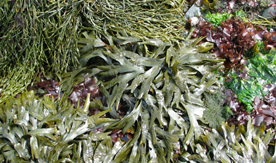2014–2015 CUGR Fall Creative and Academic Achievement Fellowship Winners Announced
The University of Maine’s Center for Undergraduate Research (CUGR) has announced the recipients of the CUGR Fall Creative and Academic Achievement Fellowships for 2014–15. The fellowships were developed to enhance and increase undergraduate student involvement in faculty-supervised research, and awarded by the President’s Office. Each fellowship provides a $1,000 award for the student to help […]
Read more
